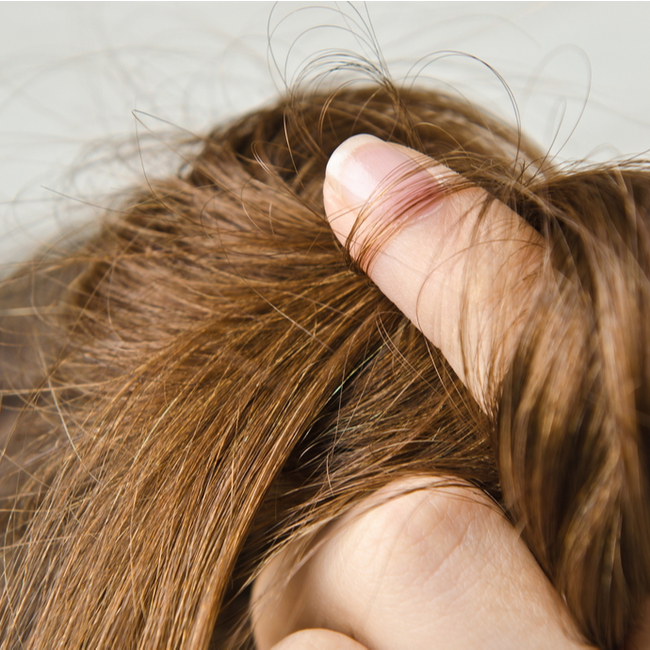
Dr. Shaver explains, "Our health can affect our hair in many ways. In addition to emotional stress, thyroid conditions, auto-immune disease, hormonal imbalance, pregnancy, anemia, crash dieting, and many other conditions can cause hair loss."
Treating thinning or brittle hair isn't just about using nourishing products - it may also be related to treating the underlying causes of hair loss. This is why it is important to maintain a healthy diet, as well as contacting your doctor if you think your thin hair is a sign of a medical concern.
She adds, "Clues from our hair quality, texture or shedding patterns may signal that an underlying medical condition may exist. For example, rapidly shedding and thinning hair or changes in hair texture such as increased brittleness may signal a thyroid deficiency. This can be detected with bloodwork to test thyroid hormone levels. Slow hair growth rate may indicate an iron deficiency which may be caused by loss of iron through heavy menses, or low intake of iron which is common in vegetarians."
Dr. Shaver tells us that thyroid conditions and hormonal imbalances will often require a consultation with an endocrinologist, while concerns such as vitamin and nutritional deficiencies can slowly resolve once corrected.
"These conditions can all lead to a medical condition known as telogen effluvium," she explains. "Once the stress is managed, the hair will subsequently respond by not shedding further and eventually regrow."
However, sometimes issues with our hair can even be a sign that some of your habits are negatively impacting your health. Dr. Annie Gonzalez, board-certified dermatologist of Riverchase Dermatology in Miami, advises us of several unhealthy factors that may lead to thinning hair.
"Dry, brittle hair could mean you are spending too much time in the sun, and if you have thin hair, your scalp is at risk of sunburn," Dr. Gonzalez says. "Thin hair could indicate you are overeating processed foods that lead to dull and thin hair. The lack of protein and nutrients in over-processed foods are damaging for your hair because they are converted into sugar."


